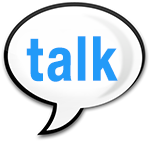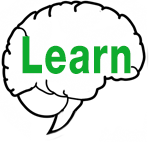| |
Skills
 Speaking
Speaking
 Listening
Listening
 Reading
Reading
 Writing
Writing
 Grammar
Grammar
 Vocabulary
Vocabulary
 Business English
Business English
 Pronunciation
Pronunciation
 TOEFL/TOEIC
TOEFL/TOEIC
 Idioms
Idioms
Levels
 Low Beginning
Low Beginning
 High Beginning
High Beginning
 Low Intermediate
Low Intermediate
 High Intermediate
High Intermediate
 Advanced
Advanced
|

Learning English grammar can be
fun and easy with
ESLgold.com.
Check out the materials we have organized for
you.
Wh- Questions allow a speaker to find out more information about topics. They are as follows:

Other words can also be used to inquire about specific information:

The "grammar" used with wh- questions depends on whether the topic being asked about is the "subject" or "predicate" of a sentence. For the subject pattern, simply replace the person or thing being asked about with the appropriate wh-word.
(Someone has my baseball.)
(Something is bothering you.) |
|
Who has my baseball?
What is bothering you? |
For the predicate pattern, wh- question formation depends on whether there is an "auxiliary" verb in the original sentence. Auxiliary or "helping" verbs are verbs that precede main verbs. Auxiliary verbs are italicized in the following sentences.
I can do it.
They are leaving.
I have eaten my lunch.
I should have finished my homework.
To make a question using the predicate pattern, first form a yes/no question by inverting the subject and (first) auxiliary verb. Then, add the appropriate wh- word to the beginning of the sentence.
(You will leave some time.) |
|
? will you leave
When will you leave? |
(He is doing something.) |
|
? is he doing
What is he doing? |
(They have been somewhere.) |
|
? have they been
Where have they been? |
If there is no auxiliary and the verb is "be," invert the subject and verb, then add the appropriate wh- word to the beginning of the sentence.
(He is someone.) |
|
? is he
Who is he? |
(The meeting was some time.) |
|
? was the meeting
When was the meeting? |
If there is no auxiliary and the verb is not "be," add do to the beginning of the sentence. Then add the appropriate wh-question word. Be sure to "transfer" the tense and number from the main verb to the word do.
(You want something.) |
|
? do you want
What do you want? |
(You went somewhere.) |
|
? did you go (past tense)
Where did you go? |
(She likes something.) |
|
? does she like (third person -s)
What does she like? |
For Practice :
Question Words (from The Internet TESL Journal)
What, When or Where? (from The Internet TESL Journal)
See also :
Speaking : Simple Questions
Speaking : Asking for information
If you have questions or comments about this page, please contact us.
Be sure to include the title of this page in the Subject line of your e-mail.

Rosetta Stone -
English |
Speak English as
a Second Language |
Learning English
- Lesson One |
English Greetings
& Phrases |
English Pronunciation |
English
- Introductions |
© Copyright 2014 check-my-english.com - All
Rights Reserved Worldwide - Arlington, VA, USA
TOEFL and TOEIC are registered and
administered by Educational Testing Service (ETS).
No connection with check-my-english.com is
implied.
|

 Phrases for Conversation
Phrases for Conversation
 Conversation Topics
Conversation Topics
 Today's News Stories
Today's News Stories
 Language Tutors
Language Tutors
 Speaking Situations
Speaking Situations
 English Conversation Partners
English Conversation Partners
 Speaking Tasks
Speaking Tasks
 Articles for Discussion
Articles for Discussion

 What's New?
What's New?
 Free-English-Study.com
Free-English-Study.com
 Places to Study
Places to Study
 Practice Your English
Practice Your English
 Daily Lessons
Daily Lessons
 Join Us on Facebook!
Join Us on Facebook!
 Verb List
Verb List
 Job Center
Job Center
 TESOL Courses
TESOL Courses
 Videos
Videos
 Words in the News
Words in the News
 Pictures, Words and Audio
Pictures, Words and Audio
 Grammar Explanations
Grammar Explanations
 Business Expressions
Business Expressions
 Teacher Resources
Teacher Resources
 ESLgold Dictionary
ESLgold Dictionary
 Reading Exercises
Reading Exercises
 Todays-Talking-Topics.com
Todays-Talking-Topics.com
 Textbook Recommendations
Textbook Recommendations
 Resources for Success
Resources for Success
 Current Topics
Current Topics
 Humor
Humor
 Software and CDs
Software and CDs
 Word of the Day
Word of the Day
 Academic Vocabulary Quizzes
Academic Vocabulary Quizzes
 Information Articles
Information Articles
|
|
 Great
Resources For Teaching & Learning English
Great
Resources For Teaching & Learning English